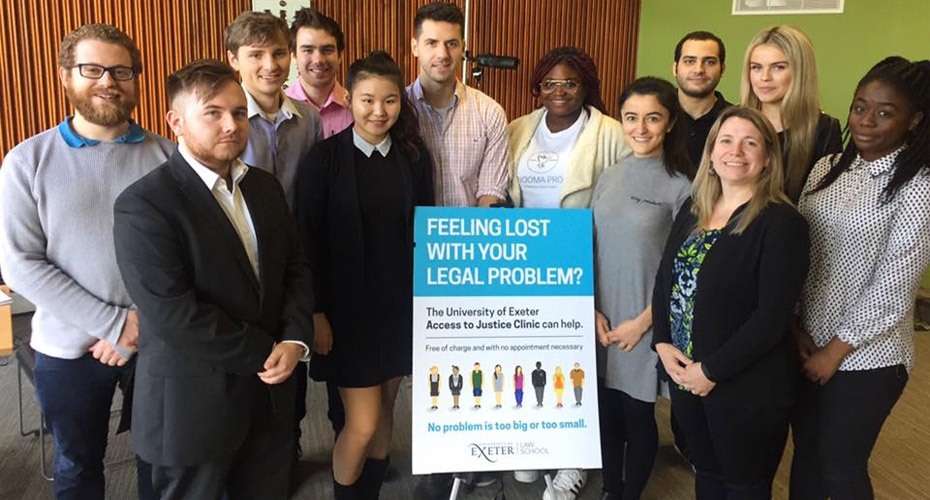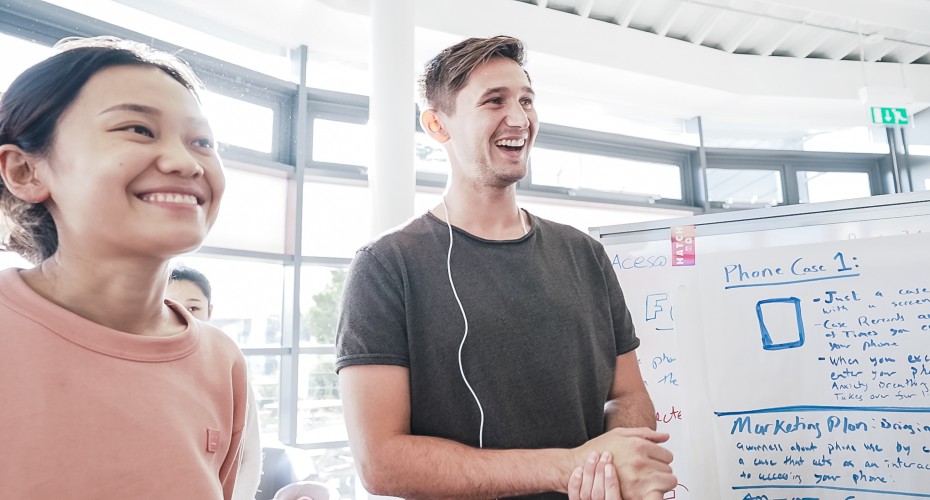
If you'd like to talk to us about supporting a particular area of student development, please email alumni@exeter.ac.uk or call +44 (0)1392 723141.
Inspire the next generation
Gaining real-world experience can be crucial for many students getting started in their chosen fields. Internships and placements give students the opportunity to earn money, develop skills and acquire relevant experience relevant or test out a particular field to make sure it is for them.
Exeter’s ‘Think Try Do’ programme aims to build on the start-up ambitions of Exeter students, giving them the chance to develop enterprise and employability skills, as well the opportunity to start their own business. The programme provides training, guidance and support, as well as being able to offer funding opportunities to promote and enable entrepreneurship in Exeter.
The Student Startup team focus on identifying and fostering the startup ambitions of University of Exeter Students across all campuses, colleges and disciplines. The programme helps students to develop a more entrepreneurial mindset and equip them with the practical toolkit necessary to inspire innovative ideas and create entrepreneurial solutions.
Students learn how to undertake rigorous market validation and develop and launch viable and sustainable new enterprises. This is done through a combination of interactive workshops and events, 1-2-1 advising and by facilitating opportunities for networking and collaboration. The goal is to provide inspiration, training, guidance, support and funding opportunities to promote, nurture and enable entrepreneurship during university and post-graduation.
Alumnus Mick Jackson (BSc & PhD Chemical Engineering, 1979, 1984) set up the Jackson-Grime-Davies research internship in 2017 in order to give students the opportunity to gain an immersive research experience by designing and undertaking their own research project.
The internship, named after Mick, his industrial mentor at ECLP Ltd (Barry Grime) and his supervisor (Tom Davies) from his time at Exeter, lasts for six weeks over the summer and attracts the most curious minded students to nurture their passion for research.
Thanks to Mick’s vision, the programme has gone from strength to strength. Many students have benefitted from the opportunity, as well as Mick’s insights and generous support, which will have immeasurable impact on their future career trajectories.
Research internships offer alumni a unique opportunity to sponsor an Exeter student to undertake an immersive and interdisciplinary research project. We are keen to offer the opportunity to more students in a range of different subject areas.
If you are interested in finding out more about the Jackson-Grime-Davies research internship scheme, and how you can support Exeter students, please contact Jess Greenaway, Development Manager on: J.A.Greenaway@exeter.ac.uk
In an effort to fill the gap left by legal aid cuts, the Community Law Clinic opened its doors in September 2017.
Third year law students, under supervision from the legal community, provide a variety of free legal services to members of the public. These services range from simple form filling/letter writing to legal advice. Having a variety of specialized clinics, allows individuals to obtain focused and personalized attention to their cases. By collaborating with legal professionals, the students gain valuable skills, while at the same time, providing a quality service.
Exeter is in an area that has been identified by the UK Government Legal Aid Agency as an ‘advice desert’, devoid of a centralised organisation providing advice and services. There are no formal Law Centres and few sources of legal advice and support outside of the service provided by Citizens Advice, south of Bristol. This affects the support available to people across a geographically wide rural area, and help to independently resolve legal problems is limited.
The Law Clinics need funding in order to keep offering services to those in need. Read these case studies to see examples of the way the clinics can help.



